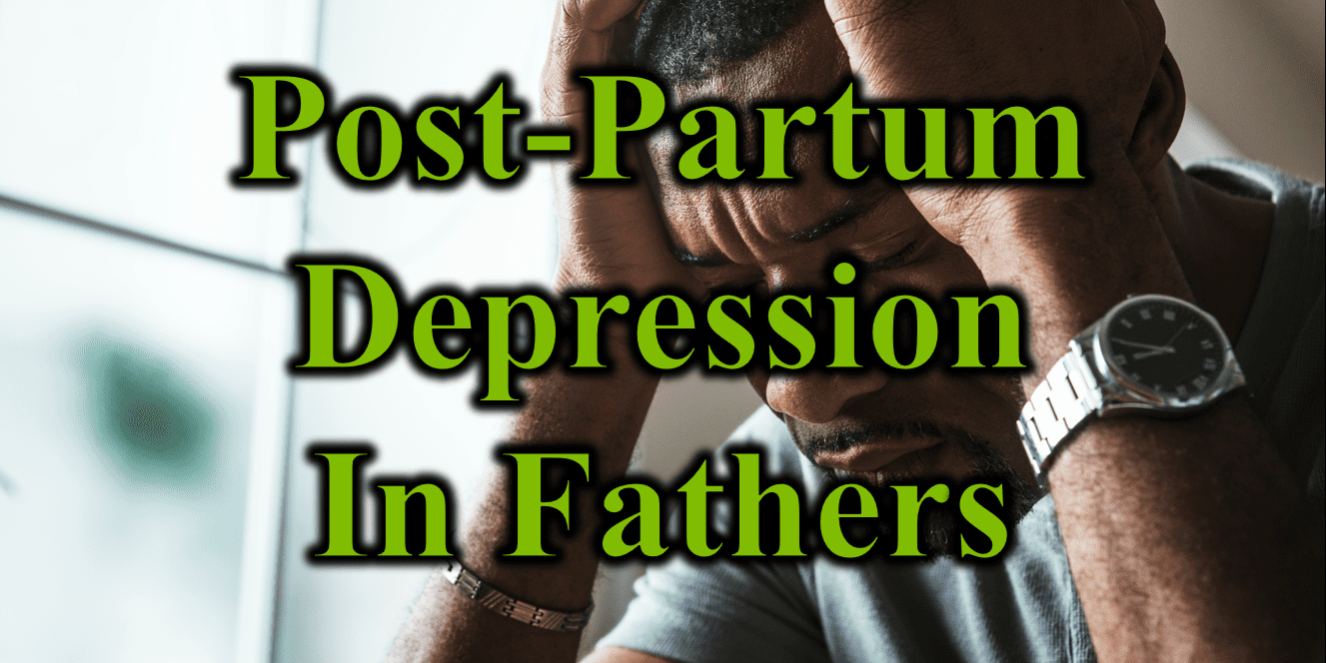I must admit when I run across something that I had not considered before. In this case, the possibility of new dads experiencing post-partum depression had not crossed my mind. We all think about moms with their hormone fluctuations and sleep deprivation as being at risk for post-partum depression. The researchers in this study noted that their “Two Generation” clinic was serving infants and their moms but not covering the new dads. To determine if a need existed for these dads, they screened those new fathers for depression symptoms, like they did for the new mothers. They found significant levels of post-partum depression in these men.
In the population they served, they found 30% had post-partum depression. In other studies, this has been estimated at 8-13% of new dads. The difference is attributed to the study population being a group at higher risk for demographic related stressors. Regardless, the study found that the dads reported stress, fear, and challenges with work-life balance. The father’s mental health has then been linked to the mother’s risk of depression. Depressed fathers often leads to depressed mothers, exacerbating the situation for both.
Other insights came from the clinic staff just chatting with the new dads during their children’s health care visits. Dads reported stress but did not want the mothers to know so as to not worry them. As can be the case, the dads were sacrificing opportunities to get care so their children and wives could get care without worrying about dad.
Even in our clinic, we are caring for more female patients. Many of them are openly discussing that they hope to have another pregnancy after they get their own health in order. Less attention is paid to their husbands’ health (although there are some exceptions). We may see the husbands for a visit or two, but the focus remains on the future mom. Maybe we should think about these other paternal factors as well.
Helping patients and their families, whether present or future, live healthier, more abundant lives requires thinking outside the box and treating the whole family as well as the whole person. Sometimes it’s easy enough- for instance, changing a wife’s diet can mean the husband gets healthier as well. Many men report feeling better as both spouses get their health self-care act together. At other times, we may need to touch base with future dads to be sure they are preparing themselves for future parenthood challenges.
Article in Focus:
Sam Wainwright, Rachel Caskey, Aida Rodriguez, Abigail Holicky, Melissa Wagner-Schuman, Anne Elizabeth Glassgow. Screening fathers for postpartum depression in a maternal-child health clinic: a program evaluation in a midwest urban academic medical center. BMC Pregnancy and Childbirth, 2023; 23 (1) DOI: 10.1186/s12884-023-05966-y
Thanks to Science Daily:
University of Illinois Chicago. “Should fathers be screened for postpartum depression? Pilot study.” ScienceDaily. ScienceDaily, 4 October 2023. <www.sciencedaily.com/releases/2023/10/231004105219.htm>. Accessed October 11, 2023.
Sanctuary Functional Medicine, under the direction of Dr Eric Potter, IFMCP MD, provides functional medicine services to Nashville, Middle Tennessee and beyond. We frequently treat patients from Kentucky, Alabama, Mississippi, Georgia, Ohio, Indiana, and more... offering the hope of healthier more abundant lives to those with chronic illness.





